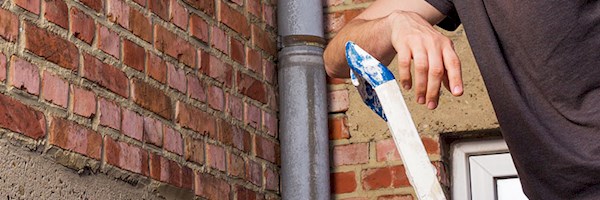You’re busy putting up a new house. Your builders haven’t performed, and you’re reluctant to pay until they do. And - big and - you’ve heard that the Constitutional Court recently found that the builder doesn’t actually have a right to payment.
So what’s the story? Do you really have to cough up?
Well, as usual - that depends.
According to Chantelle Gladwin (partner) and Ramon Pereira (associate at Schindlers Attorneys), the case of Cool Ideas 1186 CC v AC Hubbard and Another CCT 99/13 confirmed that a home builder must be registered with the National Home Builders Registration Council (NHBRC) before he or she can lawfully claim for payment under any agreement regarding the sale or construction of a home.
BACKGROUND
Chantelle and Ramon said that, as far as this question is concerned, two considerations have come into play in the years since the Constitution came into law in 1996. First that the Constitution enshrines “the right of access to adequate housing as a human right;” and second that the law now emphasises “the need to protect consumers from unscrupulous business practices.”
The relationship between “law and policy is a series of swings and roundabouts,” they said. “In the past there was little protection for consumers against ‘cowboy builders’ who promised cheap rates to build houses but often failed to deliver. Today, as the law stands, the pendulum has swung to the other extreme and housing consumers are granted more rights than unregistered home builders,” they said.
LEGISLATION AND REGULATIONS
Chantelle and Ramon said that consumers received only limited and indirect protection under the National Building Regulations and Building Standards Act No. 103 of 1977 - which created the framework that regulates the physical properties of new buildings, and which provides individual municipalities “with far-reaching powers to enforce those building standards, including the demolition of any structures that are not in compliance.”
In terms of this Act, you are, for example, required to submit building plans to your local authority, and you’re obligated to build to certain standards, and even to use materials that comply with certain standards. You would thus have recourse under this Act if a building didn’t meet those standards - or if a seller was aware of a defect and concealed that defect in order to convince you to buy a property.
But, said Chantelle and Ramon, this left a gap in cases where the builder complied with the regulations, but “the actual execution of the construction was unsatisfactory.”
Here, they said, you could seek the “ordinary contractual remedies” - known as the ‘Aedilition remedies’ - which are available in terms of the common law. These could include requiring the contractor to replace sub-standard materials; asking for a reduction in the purchase price equal to the amount that it would cost to get the job done properly; or even rescinding the contract and requiring the return of any monies that the contractor may have received.
“The legislature identified certain shortcomings of the Aedilition remedies and in response sought to codify these remedies [via] the Housing Consumers Protection Measures Act 95 of 1998,” said Chantelle and Ramon.
This is the Act that created the NHBRC - and which “creates minimum standards that must be maintained by home builders” by forcing them both to register with the NHBRC, and to prove their competence “by passing exams to qualify for registration.”
The Act also requires that every new home must be ‘enrolled’ with the NHBRC, which administers an insurance fund (financed partly by fees raised from the registration of builders, and partly from enrolment fees) “to compensate housing consumers who suffer as a result of defective building by home builders.”
CRIMINAL OFFENCE
Chantelle and Ramon said that the Act makes it a criminal offence for unregistered home builders to enter into contracts to build houses for housing consumers.
This, they said, is the basis for the Constitutional Court’s finding in the Cool Ideas case - which confirmed that a home builder must be registered with the NHBRC before he or she can receive “any consideration in terms of any agreement with a housing consumer in respect of the sale or construction of a home.”
This doesn’t mean that the contract becomes invalid, though - simply that the unregistered contractor isn’t entitled to payment in terms of the contract.
“In the view of the court... such sanction is in place to prevent unregistered home builders from entering into contracts with housing consumers. It is important to note that this case does not deal with the consequences of failure to enrol a property with the NHBRC,” they said.
Chantelle and Ramon felt, though, that the law as interpreted by the Court in this case, “may be too onerous inasmuch as it provides that the building contract will be valid but at the same time prevents one of the parties [the builder] from claiming remuneration in terms of it.”
But they warned that while you could argue that you don’t need to pay your unregistered builder for shoddy workmanship, it makes a lot more sense to appoint a registered builder in the first place, and also to insist that your house should be enrolled with the NHBRC.
Because by complying with the legislation, you’ll be protecting your investment - both since you’ll have the weight of the law on your side, and since you’ll have recourse (and you could even apply for compensation from the NHBRC) if the worst comes to the worst and your registered builder does the nasty.





